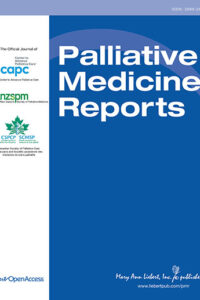Background: Empathy is a cornerstone of effective communication. However, clinicians’ and patients’ perceptions of clinician-expressed empathy might differ. The independent perceptions of patients and clinicians on clinician-expressed empathy in advanced cancer consultations and the associations of these perceptions with patient outcomes are unknown.
Objective: We assessed patients’ and clinicians’ independent perceptions of clinician-(self-)expressed empathy in advanced cancer consultations and the associations between these perceptions and affective patient outcomes.
Methods: This observational study included data from 41 consultations in the advanced breast cancer setting. Postconsultation, patients’ and clinicians’ perceptions of clinician-expressed empathy were assessed, as well as patients’ pre–post anxiety, post-anxiety, emotional well-being, and satisfaction. Multilevel regression analyses were run to draw conclusions.
Conclusions: Patients’ and clinicians’ empathy perceptions differed. In improving patient outcomes, the focus should be on patients’ perceptions of clinician-expressed empathy. Future research could focus on ways to elicit patients’ perceptions of empathy with the higher aim of improving patient outcomes.




